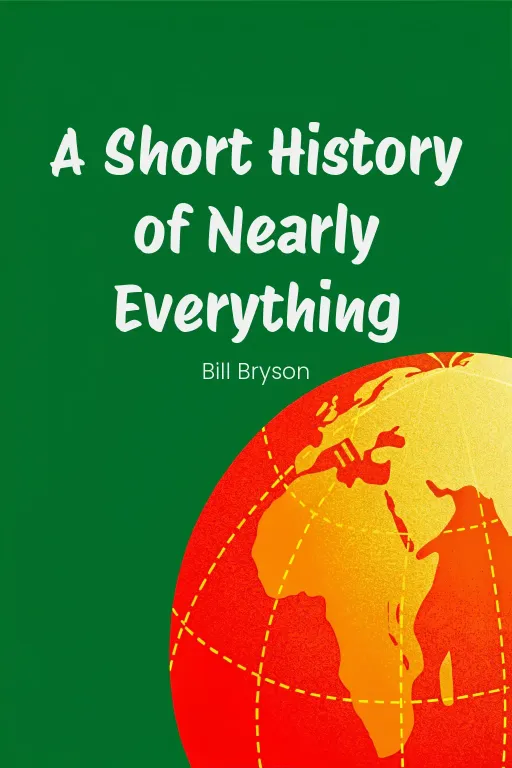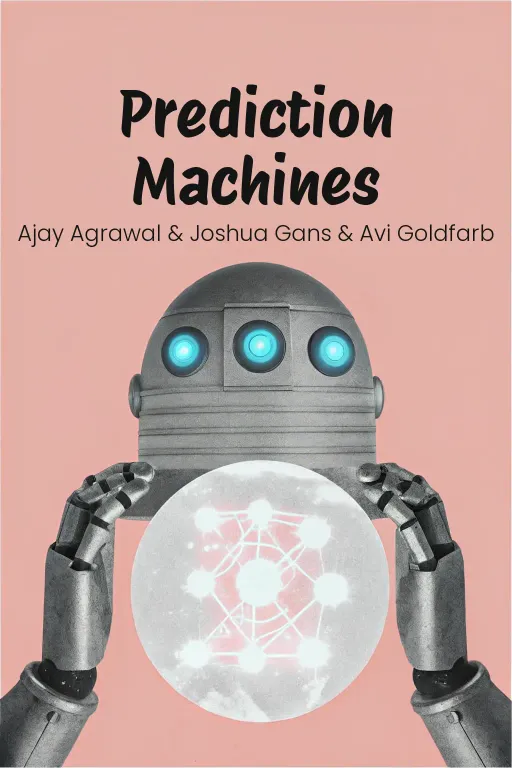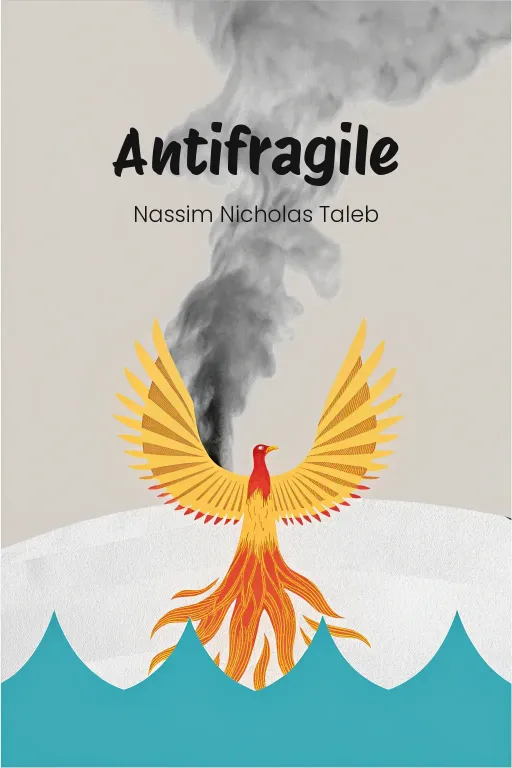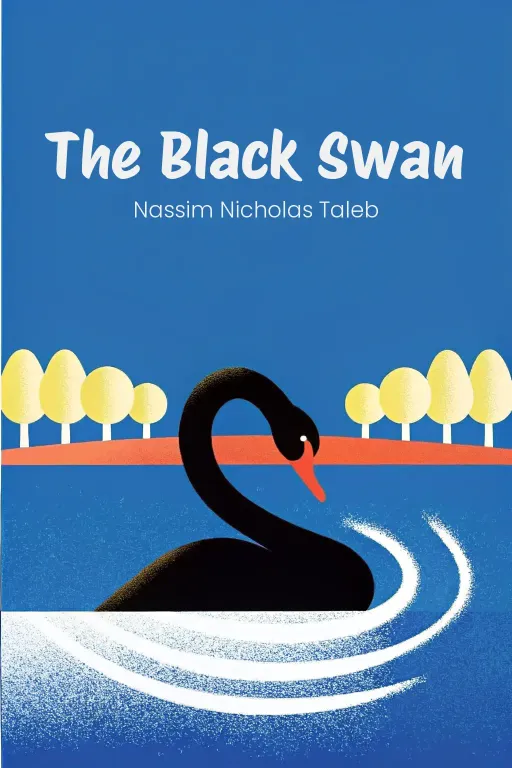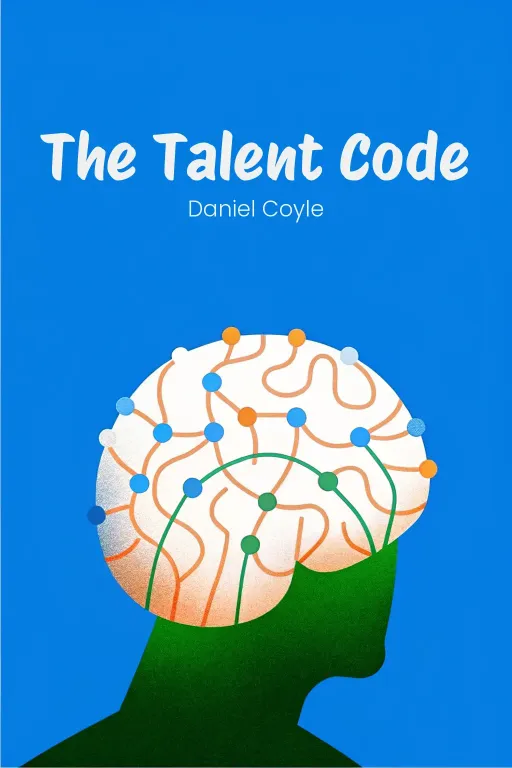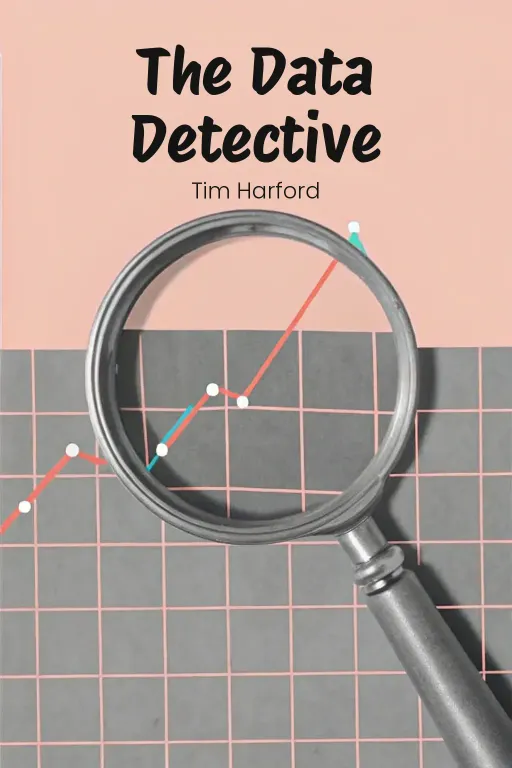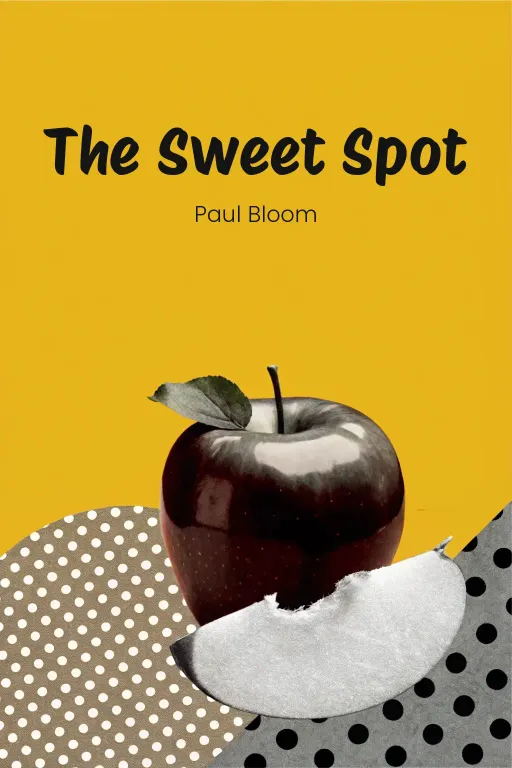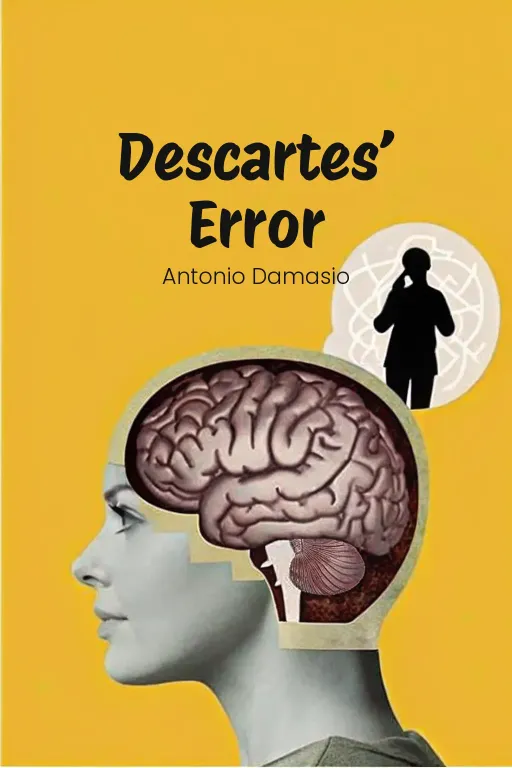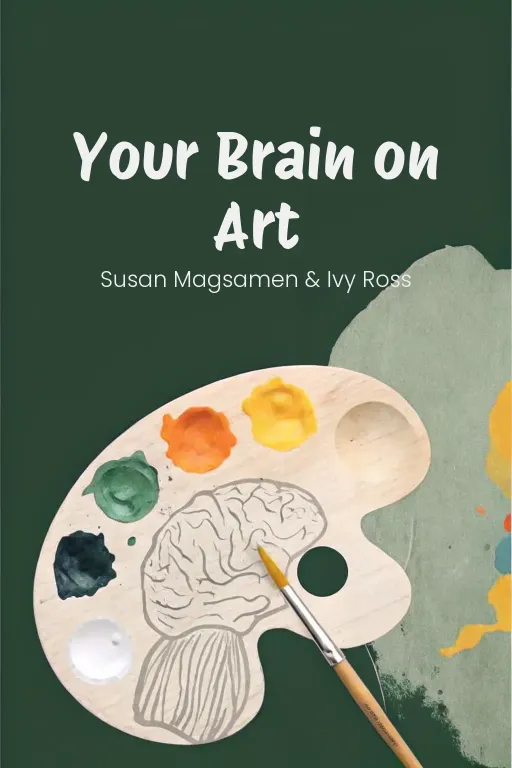
Chaos Proof Your Life
Podcast by Wired In with Josh and Drew
The Impact of the Highly Improbable
Introduction
Part 1
Josh: Hey everyone, welcome to the show! Let's kick things off with a scenario we all know: You're cruising along, life's predictable, and then BAM! Something totally unexpected throws everything into chaos. It's like planning a picnic and ending up in a monsoon. Drew: Yeah, and doesn’t it seem like after the monsoon, everyone claims they totally saw it coming? Like, "Oh, the barometric pressure was a little off this morning…" Where were these weather geniuses when we were packing our sandwiches, huh? Josh: Precisely, Drew. That's the central idea of The Black Swan by Nassim Nicholas Taleb. It’s about those Black Swan events—rare, unpredictable occurrences with massive consequences that no one anticipates. Taleb argues that despite our love for predictions and planning, our inherent biases and flawed thinking make us completely blind to these game-changers. Drew: So, we're basically just stumbling around in the dark, waiting for the next disaster? Sounds… optimistic. Josh: It's not all bad news! Today, we're going to dive into three crucial aspects of the book. First, we'll unpack just how powerful these Black Swan events are and how much they shape history. Think of them as huge asteroids—totally unexpected, and reshaping everything in their path. Second, we'll highlight the mental biases that leave us exposed to these events. And finally, we’ll explore some survival strategies…Taleb’s practical advice for navigating the unpredictable and even benefiting from it. Drew: So, instead of trying to predict the asteroid, we’re learning how to dodge it? Okay, I’m in. What does this survival kit look like? Does it come with snacks?
Black Swan Events
Part 2
Josh: Exactly! It’s funny you mention being prepared because Black Swans really force us to rethink what that “actually” means. So, let's really nail down the definition here. Taleb describes a Black Swan event as something rare, unpredictable, and something that changes the world. But, the real kicker? After it happens, everyone scrambles to create stories that make it seem like it was “totally” foreseeable. Drew: Oh, hindsight. The unreliable superhero of "I told you so," always arriving fashionably late to the party. So, unpredictable, transformative, and only obvious “after” the fact. Got it. Josh, can you give us an example that really hits home? I’m still picturing literal flocks of black swans dive-bombing Wall Street. Josh: <Laughing> I love that image, Drew! Okay, think about Google. Back in '98, it was just another search engine swimming in a really crowded pool dominated by the Yahoos of the world. Google's rise wasn't some carefully planned outcome everyone saw coming; it was a total Black Swan. The underlying algorithm was revolutionary, sure, but no one could predict just how thoroughly it would reshape how we access, organize, and “monetize” information. I mean, today, it's almost impossible to imagine life without Google, but really, nobody saw that taking off like a rocket. Drew: I get it. It’s like showing up to an open mic night expecting tone-deaf karaoke and discovering Adele, you know? But doesn't the tech industry “kind of” thrive on unpredictable breakthroughs anyway? I mean, sure, Google was huge, but isn’t this just… innovation doing its thing? Josh: Well, you're partially right, Drew. Innovation “does” thrive on unpredictability, but the sheer magnitude and the domino effect of something like Google puts it squarely in Taleb's "Extremistan" category. It's not just about innovation; Google completely rewrote the rules of the game for industries “way” beyond tech – think advertising, journalism, even geopolitics. That’s the hallmark of a Black Swan - systems that seem rock solid suddenly evolve – or collapse – in ways no one was ready for. Drew: Hmm, that gets into the darker side of things, doesn't it? Let's talk about September 11th. As much as Google's reshaped modern life for the better, the 9/11 attacks were a tragic, devastating Black Swan. It definitely checks all the boxes, right? Shocking, catastrophic, and followed by everyone trying to make sense of it after the fact. Josh: Absolutely. On September 10th, 2001, the idea of terrorists weaponizing commercial airplanes felt, and I hate to use this word considering the context, “unthinkable.” The scale and audacity of the attack caught intelligence agencies and the global public completely off guard, and yet, within days, retrospection kicked in. People started pointing to supposed “warning signs” and security lapses as if they were all part of some master plan leading to that moment. Drew: Yeah, the classic post-failure autopsy. But Josh, does Taleb suggest that we “should” be able to predict these horrors, or that we just need to accept that the world is fundamentally chaotic? Josh: It’s definitely the latter, according to Taleb. He's not saying we “should” or even “can” predict Black Swans. Instead, he stresses how much over-reliance on predictive models blinds us to the unknown. It's not about making better forecasts; it's about lessening how much we depend on forecasts in the first place! And this is where it gets really interesting. He explains this with the concept of two worlds: Mediocristan and Extremistan. Drew: Sounds like something out of a Tolkien novel, but okay. What’s the difference between these two, and why should we care? Josh: Okay, so in Mediocristan, life follows predictable, incremental rules. Think human height. Most people cluster around the average. Extremistan, on the other hand, is a realm of outliers, where extreme values – like, say Jeff Bezos' net worth – completely overshadow everything else. A lot of life's randomness lives in Extremistan, but we mistakenly treat it like Mediocristan, and apply nice little Gaussian bell curves to things that are anything but linear. Drew: So, when you hear someone say, "History repeats itself," that's a Mediocristan way of thinking? And then a Black Swan shows up and… poof!… those patterns are worthless? Josh: Exactly! Taleb argues that we base our predictions on what's familiar, 'cause it's comforting. You always hear things like "past performance is the best predictor of future results" – especially in finance – but that whole mindset falls apart when a Black Swan hits. And that brings us to another one of his main points: experts always expect tomorrow to look like today, but history, Drew, has never played by those rules. Drew: Right, because history's scriptwriter loves a good plot twist. But why do we keep falling into this trap? Are we just hardwired to oversimplify things? Josh: That's really the heart of Taleb's argument. It boils down to human biases – the stories we tell ourselves. Our brains crave order and causality, so we tend to smooth out the rough edges and ignore those warning signs that don't quite fit our narratives. And that's precisely why, after a Black Swan, we rush to put together an explanation, as if connecting the dots was obvious all along. Drew: So, we're squeezing randomness into the shape of logic, basically! It's a bad game of Tetris with reality. But here’s a thought: does this reliance on predictability explain why we often miss other systemic vulnerabilities? Josh: Absolutely. That false sense of security doesn't just blind us to potential threats, it makes us fragile. Taleb believes that the more we cling to predictability, the more fragile our institutions and systems become. Instead, we should be prepared for chaos – not by trying to guess what form the next disaster will take, but by building adaptability into our responses. Drew: Okay, so it's less about predicting the next hurricane and more about designing a house that won't crumble when unexpected winds hit. Got it. Does Taleb actually offer some actionable steps on how to “do” this, or are we just left here bracing for impact?
Cognitive Biases and Human Perception
Part 3
Josh: Exactly, Drew. Taleb actually offers ways to counter these cognitive weaknesses. But before we jump into solutions, let's really nail down why these biases—confirmation bias and the narrative fallacy especially—are so dangerous. They mess with how we see the world and how we react to it, and they can trap us in some “really” bad decision-making patterns. Drew: Okay, Josh, let's dissect these mental pitfalls, starting with confirmation bias. Give us the lowdown. Josh: So, confirmation bias is basically our tendency to grab onto information that supports what we already believe, while, you know, ignoring anything that challenges it. It feels good, it’s easy, and it protects our worldview. But it’s also super risky because it distorts reality. Taleb often talks about how people misuse anecdotal evidence, like saying, "Well, I've never seen it, so it probably doesn't exist." That kind of thinking just throws out any evidence outside of our own little bubble. Drew: Right, like saying, "I’ve never gotten food poisoning from street food, so it’s not a real problem," while ignoring all kinds of research and statistics. Because your stomach is the only expert, right? But how does this play out on a bigger scale? Josh: Think about finance. This bias is everywhere. Investors might focus on a stock’s past performance as "proof" it will keep doing well. But honestly, past performance means nothing in an unpredictable market. Look at the 2008 crisis. People ignored warnings and signals because they believed in the housing market. And when that illusion shattered, it was devastating. Drew: So, we ignore risks that don’t fit our story, and then act shocked when things go south. But Josh, can't people just use evidence to challenge their own assumptions? Wouldn’t that lead to better decisions? Josh: You'd think so, Drew, but it's “really” uncomfortable psychologically. Our brains hate cognitive dissonance—that feeling when new info clashes with what we already believe. It’s easier to ignore the conflicting evidence than face that discomfort. Taleb criticizes this a lot, saying that avoiding uncomfortable truths is what makes us vulnerable to Black Swans. Drew: So, confirmation bias is like wearing blinders to avoid seeing a truck barrelling toward you? Fantastic. What about the narrative fallacy? Is that another comfort thing? Josh: Definitely rooted in comfort. The narrative fallacy is about our need to turn messy, random events into tidy stories. Taleb says we're wired to look for cause and effect; it’s how we understand the world. But life isn’t some neat, structured plot. Reality is messy, random, and influenced by chance more than we like to think. Drew: Right, let’s get specific. How does the narrative fallacy lead us astray? Josh: Well, Taleb gives the example of how people explained the September 11 attacks. Beforehand, the idea of terrorists using planes as weapons on that scale was unimaginable. But after, the media and intelligence agencies started piecing together "warning signs," creating a narrative that made it seem preventable, even "obvious" in hindsight. Drew: As if there were neon signs flashing "Terrorist attack coming!" It’s easy to blame people after the fact, but it gives us this false sense that we could have predicted it if we'd only been paying attention. Josh: Exactly, it’s an illusion of foresight. Taleb argues that history doesn’t flow smoothly; it jumps. These jumps, these outliers, are Black Swans. And by creating these neat stories to explain them, we misunderstand the randomness of events and set ourselves up for future surprises. It’s a false sense of security. Drew: Okay, so confirmation bias keeps us focused on flawed information, and the narrative fallacy rewrites history into a comforting lie. That's a one-two punch of cognitive problems. How does all this relate to overconfidence? Josh: Good question. When we fall for these biases, we start to overestimate our ability to understand and control things. Taleb points to experts who have fallen into this trap. Think about the Lebanese Civil War, where experts predicted it would end within weeks because it fit their models. Instead, it lasted years. Their overconfidence blinded them to the chaos around them. Drew: And what’s the price of that overconfidence? Is it just bad judgment, or does it expose us in a specific way? Josh: The consequences can be “really” bad. Overconfidence makes us underestimate risks, ignore complexity, and trust systems that are more fragile than they appear. It’s why people build houses on floodplains, thinking a big flood won't happen in their lifetime, or why companies rely too much on forecasts that don't account for unexpected disruptions. Taleb’s point is that if we don’t acknowledge our ignorance, we’re building on shaky ground. Drew: So, these biases aren’t just quirks; they're weaknesses in how societies operate. So, can we fix this? Or are we doomed to repeat the same mistakes?
Strategies for Embracing Uncertainty
Part 4
Josh: So, recognizing these biases really highlights the need for strategies to navigate unpredictability, right? Taleb isn't just pointing out our mental blind spots to leave us feeling hopeless, no way! He offers concrete approaches—practical tools and mindset shifts—for embracing uncertainty and, more importantly, turning it into an advantage. And at the core of this discussion is his famous barbell strategy. It's a fascinating framework that not only addresses our vulnerabilities but also equips us to thrive in environments dominated by randomness. Drew: Alright, I’m intrigued. The barbell strategy, huh? Sounds like something my gym instructor would yell at me about, but this is more about financial and life planning, right? So, what's the elevator pitch for this strategy, Josh? What's the core concept? Josh: Okay, so imagine a barbell, right? With heavy weights on either end and nothing much in the middle. Taleb's strategy works the same way: you place the bulk of your resources—let's say around 85-90%—into ultra-safe, stable investments, like government bonds or, you know, high-yield savings accounts. This makes sure you won’t face total ruin if chaos does hit. Then, that remaining 10-15%? You allocate that to high-risk, high-reward bets. Think speculative ventures, disruptive technologies, or breakthrough innovations. The key here is to avoid the "mushy middle"—where risks are often underestimated, but the rewards are mediocre at best. Drew: So, it's like a financial game of extremes then. Play it super safe on one end, and go all-in on the wild cards with the rest. But why avoid the middle? Isn't that where most people feel comfortable—like, not too risky, not too boring? Josh: That's exactly the trap that Taleb warns against. The middle gives the illusion of safety, but it's often the most fragile position. It’s the realm where Black Swans strike hardest because those risks are often hidden. Think of it this way: medium-risk investments might look stable on paper, but when a disruptive event happens, they're exposed to catastrophic losses. For example, during the 2008 financial crisis, many supposedly safe bets in the housing market turned out to be, well, time bombs. Meanwhile, Treasury bills, you know, the ultra-safe end of the spectrum, were basically untouched. Drew: And those high-risk bets? They’re just there to keep life exciting, maybe? Or are they actually essential to the strategy? Josh: They're absolutely essential, Drew. That's where the upside lies, right? By allocating a small portion of your resources to ventures with the potential for massive returns, you’re not just hedging against risk—you’re opening the door to significant opportunities. Taleb argues that while most high-risk bets will probably fail, all you really need is one or two wild successes to make up for all the losses and then some. It’s about, you know, being positioned to benefit from the unpredictable rather than being crushed by it. Drew: I think I get it now. The safety end keeps you grounded, and the high-risk bets let you soar if something truly unexpected pays off. But any real-world examples of this working, Josh? Because I feel like this could either lead to astonishing success… or me living in a van eating instant noodles. Josh: <Laughs> Okay, let's use a simple case from the startup world as an example. Think of an investor who follows the barbell strategy. She keeps the majority of her wealth—say, 90%—in ultra-secure government bonds. That portion is rock solid, right? The other 10%? She invests in a range of startups. Most of them fail or fizzle out, just as expected. But then, one of those startups creates, say, a revolutionary clean energy technology. The returns from that single success eclipse all the losses combined. So it’s a case of harnessing the power of outliers while ensuring your safety net stays intact. Drew: Okay, I see the appeal now. Sure, you’re letting most of the high-risk portfolio tank, but one Tesla--or one Amazon--makes all the difference. But Josh, this still feels pretty… I don’t know… calculated. Can we dive deeper into the mindset behind it? What’s the bigger philosophy here? Josh: Great point, Drew. The barbell strategy isn't just about financial planning—it reflects a broader approach to life. Taleb’s philosophy “really” centers on resilience and, more importantly, antifragility. Resilience, of course, is withstanding shocks. But antifragility goes further: it’s thriving and even improving when chaos hits. The barbell strategy embodies this by creating structures that not only withstand upheaval but come out stronger on the other side. Drew: So in a way, it's about adopting an evolutionary mindset. Build systems—or lives—that adapt to chaos instead of being broken by it. But that raises another question for me: what about when randomness cultivates genius? Like, how do we become proactive, rather than just waiting for the dice to roll our way? Josh: Well, Taleb dives into that, too, through the concept of cultivating serendipity. It’s about creating environments where randomness works in your favor. He tells the story of Apelles, an ancient painter. Frustrated by how his attempts to depict frothy horse saliva kept failing, he threw a sponge at the canvas in exasperation. The accidental splatter actually achieved exactly the effect he’d been striving for. Apelles didn’t just passively accept randomness—he let it become the solution. Drew: Apelles, the OG Jackson Pollock! But seriously, what do we do with that idea beyond chucking sponges at problems? Josh: It's about exposing yourself to diverse experiences, people, and ideas. In a practical sense, this could mean networking in unexpected fields, experimenting with unconventional projects, or simply stepping outside your comfort zone. By doing so, you put yourself in positions where serendipitous opportunities are more likely to emerge. I mean, for instance, we often hear about entrepreneurs meeting their future co-founders purely by chance at some obscure conference, right? That randomness isn't an accident—it's serendipity born out of openness to possibility. Drew: And what’s brilliant here is how this outlook shifts the focus from control to adaptability. Instead of obsessing over what you can't predict, you embrace what you can. That feels like a game-changer, Josh, because it’s less about trying to win against the chaos and more about inviting it in. Josh: Absolutely. Taleb argues that randomness isn't the enemy—it's a source of strength if you learn how to leverage it. By combining safety nets, strategic risks, and a healthy openness to serendipity, you essentially build a life—or a system—that's unbreakable yet full of potential for unexpected breakthroughs. And, honestly, Drew, isn’t that the kind of survival kit you’d want?
Conclusion
Part 5
Josh: So, to bring it all together, “The Black Swan” really hammers home the idea that life is largely shaped by these rare, unpredictable events that we just can't see coming. And instead of trying to force a sense of control where it doesn't exist, Taleb urges us to acknowledge our own cognitive biases—things like confirmation bias, the narrative fallacy—that keep us blind to the chaotic forces at play. But this isn’t a reason to feel hopeless. On the contrary, it's a chance to really rethink how we approach uncertainty. Drew: And that's where Taleb's strategies come into play, isn’t it? The barbell strategy, for example, shows us how to establish a solid, safe base while still allowing room for those calculated, bold risks. It's about preparing for the extremes, rather than getting too comfortable in that seemingly safe middle ground. Ultimately building resilience and embracing randomness, rather than being afraid of it. Josh: Precisely, Drew. What Taleb's really advocating is that we see unpredictability not as something to fear, but actually as an opportunity. By developing systems, making decisions, and even living our lives in ways that can adapt and flourish amidst chaos, we can transform uncertainty into a real source of strength. So, the real takeaway here? Let go of the illusion of control, minimize what makes you vulnerable, actively seek out serendipitous moments. And most importantly, remember that embracing the unpredictable is really the first step toward not just surviving but absolutely thriving in it. Drew: That's a lot to unpack, Josh. Black Swans might be impossible to predict, sure, but at least we now understand that they can be opportunities in disguise – provided we’re prepared to adapt and, well, evolve.
